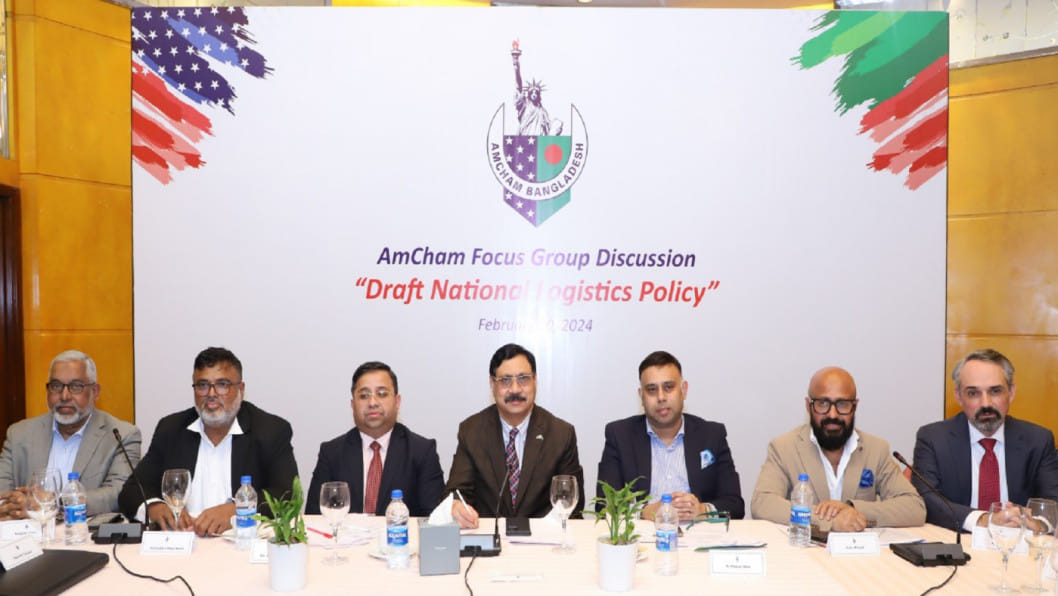Businesses demand world-class logistics policy

Businesses in Bangladesh yesterday demanded the government ensure world-class logistics services to address different challenges in this regard as the maiden national logistics policy will be framed soon.
In absence of a wide-ranged policy, the logistics services and businesses are operating in a piecemeal basis and valuable trade in logistics is not coming under any single platform, the businesses said.
Besides, the scattered logistics business is not able to address different trade related challenges while the roles of different government and private sector stakeholders are not well defined.
For example, it is still unclear how foreign and local logistics companies will serve their customers and how foreign direct investment in this promising sector will take place.
The businesses also pointed out that the legal affairs and required safety measures of logistics businesses and services are not well articulated in the draft national logistics policy.
So, these issues should be incorporated in finalised draft policy, they said.
The businesses suggested incorporating more opinions from various stakeholders before finalising the national logistics policy as a well written policy will cover wider issues, thereby ensuring better services.
Additionally, they urged for developing the logistics industry in a way that it can be used as a hub for both regional and international trade.
For instance, the Dubai airport has gradually turned into a global hub for the airlines business, they said.
These comments came at a discussion on the "Draft National Logistics Policy", organised by the American Chamber of Commerce (AmCham) in Bangladesh at The Westin hotel in Dhaka.
Various businesspeople, researchers, economic experts, traders, exporters, lawyers, journalists, diplomats and trade body leaders participated in the event.
Masrur Reaz, chairman of the Policy Exchange of Bangladesh, said nine ministries and 22 sub-sectors are directly related to the national logistics policy.
In Bangladesh, the primary trade corridor is the Dhaka-Chattogram highway but it needs to be expanded for better business facilities.
AmCham President Syed Ershad Ahmed said many issues related to customs clearance have not been addressed in the draft policy.
Currently, businesses need to secure 22 manual signatures to have their goods released from ports.
Addressing the lack of tracking and testing facilities through the national logistics policy is also important but those issues have not been included in the draft, Ahmed added.
Historically, there has not been much progress in the logistics industry of Bangladesh, said Kabir Ahmed, president of the Bangladesh Freight Forwarders Association. He added that it is important to include the customs department and private sector in forming the national logistics policy.
John Fay, commercial counsellor of the US Embassy in Dhaka, suggested ensuring better infrastructure like warehouses, capacity building, testing labs and increasing the efficiency of customs.
He said setting an international standard as the benchmark for local logistics services would make the industry more competitive worldwide.
Fay also said the government should promote reducing carbon emissions by incorporating related measures when formulating the national logistics policy.
Bangladesh needs to drastically improve its logistics network to handle the fast growing inbound and outbound cargo and container movement in line with the country's remarkable economic growth.
The demand for warehouse space for storing imported and export goods near ports, which now stands at 41.5 million square feet, is expected to increase to 68.24 million square feet in the next four years.
The capacity of the implemented and planned waterway-based inland container depots and terminals are assumed to remain at 0.24 million TEUs and come to exhaustion by 2025.
Bangladesh is lagging in the global logistics index as the country ranks 100th among 140 nations while India places 42nd and Thailand is 34th.
Mohiuddin Abdul Kadir, president of the FCILT, Mamun Habib, a professor at Independent University Bangladesh, and Mohammad Refayet Ullah Mirdha, president of the Economic Reporters' Forum, also spoke.

 For all latest news, follow The Daily Star's Google News channel.
For all latest news, follow The Daily Star's Google News channel. 






Comments